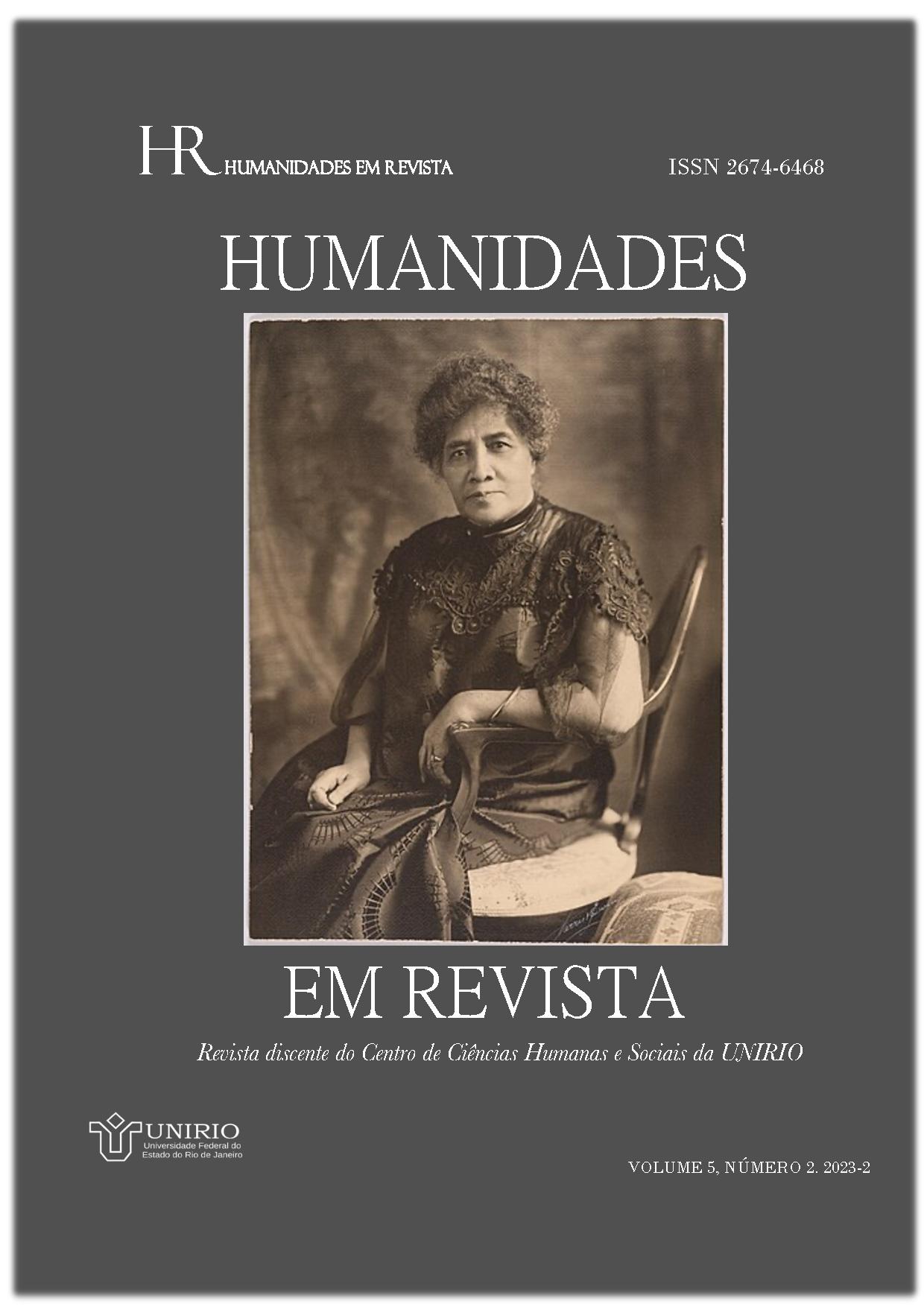The Reproduction of Gender Prejudice in Biographical Analyses of Female Figures of the Third Reich.
Keywords:
Leni Riefenstahl, Biographies of Nazis, Nazism and Female Figures, Misogyny in Biographical Analysis, nazi filmmakersAbstract
Through considerations of gender studies, this text provides a critical analysis of the biographical work written by Steven Bach (2007) about the trajectory of the Third Reich's main propaganda filmmaker, Leni Riefenstahl. Several instances of potential mistakes and generalizations in the biography were analyzed, reinforcing gender role structures and concealing historiographical issues fostered by the reproduction of patriarchal patterns in academia. The biographical analysis evaluated assertions that denote gender prejudices, without implying support for the controversial actions carried out by the filmmaker during her involvement in the Third Reich. Thus, the research acknowledges the author's important role in exposing the crimes of Nazism and the memory of its associates, but it also highlights how gender bias can lead to the reproduction of profound analytical mistakes in historiographical production.
Downloads
Downloads
Published
How to Cite
Issue
Section
License
Copyright (c) 2024 Gabriel Sant anna Bonifácio Chagas

This work is licensed under a Creative Commons Attribution-NonCommercial-NoDerivatives 4.0 International License.
Os direitos autorais de qualquer trabalho publicado na Revista pertencerão aos autores. Não haverá qualquer pagamento pela publicação na Revista e a aceitação dos originais implicará na aceitação das condições descritas nas informações sobre a revista constantes do escopo e de todas as regras apresentadas, assim como o respeito à legislação e às normas vigentes concernentes a publicações. A UNIRIO e seus entes subordinados não se responsabilizarão por quaisquer equívocos, questões e contendas entre autores, participantes e/ou entes institucionais que sobrevenham às publicações. O e-mail do autor será disponibilizado no trabalho.
A revista oferece acesso livre imediato ao seu conteúdo, seguindo o princípio de que disponibilizar gratuitamente o conhecimento científico ao público proporciona maior democratização mundial do conhecimento, sempre dentro dos limites da legislação de direito de autor e de direitos conexos. É adotada a licença Crative Commons do tipo “Atribuição-Não Comercial-Sem Derivações 4.0 Internacional (CC BY-NC-ND 4.0)”, acessível em: https://creativecommons.org/licenses/by-nc-nd/4.0/legalcode.pt , segundo a qual, em linhas gerais, é permitindo fazer o download dos trabalhos e o seu compartilhamento para fins educacionais, desde que sejam atribuídos os créditos a seus autores, citando também o repositório dos trabalhos, e sem que se possa alterar o material de nenhuma forma ou utilizá-lo para fins comerciais.





 Qualis/CAPES 2021- 2024 B2
Qualis/CAPES 2021- 2024 B2 Diretório das revistas científicas eletrônicas brasileiras
Diretório das revistas científicas eletrônicas brasileiras




